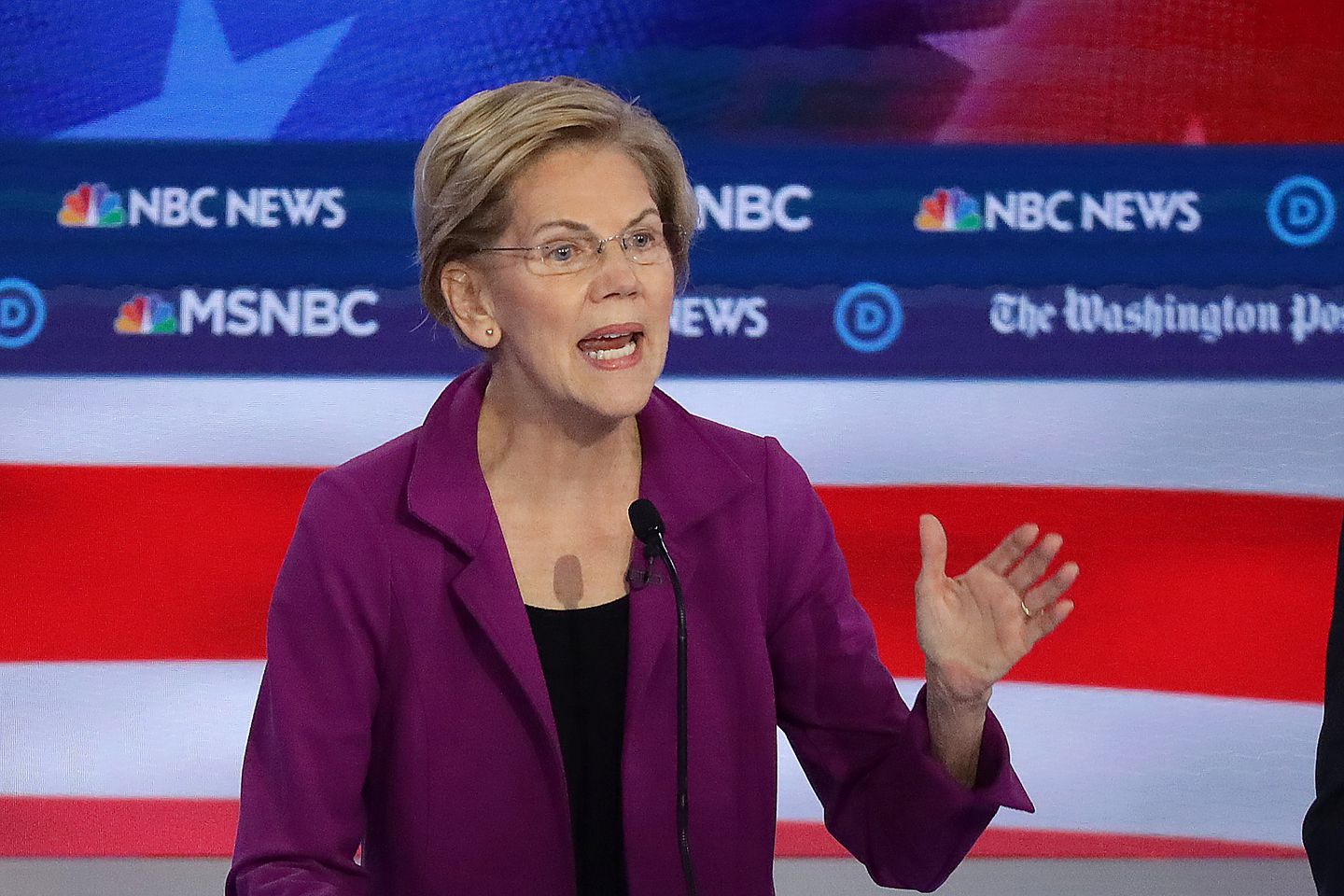
The Wednesday night Democratic Debate in Atlanta, Georgia marked the fifth debate of the 2020 election cycle. Co-hosted by MSNBC and The Washington Post, the debate featured an all-female panel of moderators — the first all-female group of moderators this election cycle — which was the third ever in American history. On the other side of the stage stood ten candidates, two short of the previous debate.
Expectations for the debate varied. Some expected a clash between the three front runners while others anticipated a surge of attacks from the lower tier candidates attempting to redeem themselves in the polls. However, this November debate lacked the energy of the previous debates, with candidates preferring to push their own talking points over engaging with each other.
In recent weeks, Mayor Pete Buttigieg has become the media darling of mainstream news outlets covering the presidential race. Being dubbed as the centrist Democrat, Buttigieg has become a recognizable face in the playing field. Since his previous debate performance, Buttigieg has slowly but surely risen in the polls, landing a spot in the top four.
This time around, many expected the heat to fall on Buttigieg, especially from candidates like Kamala Harris who are suffering from his gains. Earlier in the week, Harris exposed Buttigieg on Twitter for his team’s usage of a stock photo featuring a Kenyan woman to advertise his campaign for African-American communities.
When the moderators brought up Harris’s tweets, she avoided attacking Mayor Pete and instead went for a general statement on rebuilding the “Obama coalition” and gaining the trust of African-Americans, stating, “For too long, I think candidates have taken for granted constituencies that have been the backbone of the Democratic party and overlooked those constituencies.”
Buttigieg — who is at nearly zero percent polling with African-American voters — calmly replied: “I welcome the challenge of connecting with black voters.”
While on the topic of black voters Joe Biden joined the discussion, emphasizing the fact that he was a part of the “Obama coalition” because of the amount of support he has from the African-American community. Cory Booker — who was speaking out against minority voter suppression and the criminal justice system — called out Biden for claiming that marijuana was a gateway drug.
Booker exclaimed, “I thought you may have been high when you said it,” eliciting a mixture of gasps and laughs from the audience.
Later on in the debate, Biden spoke on domestic abuse, referencing his efforts in passing the Violence Against Women Act. The former vice president claimed that we have to keep “punching” at domestic violence in order to stop it. At one point, Biden even attempted to confront new candidate Tom Steyer on his unreliable climate change record. Though Biden’s comments were not well delivered, he was generally able to avoid damaging confrontations — which is just what he needed to maintain his frontrunner status.
Meanwhile, none of the candidates challenged Elizabeth Warren’s revised Medicare for All plan. Warren’s new plan of action includes an opt-in government-run health care system for the first three years of her term, and then an eventual shift to Medicare for All once people have a sense of the major benefits. This shift in Warren’s healthcare plan challenges her authenticity as a truly progressive candidate, as the plan seems to closely resemble Buttigieg’s “Medicare for All Who Want It.”
After Warren explained the framework for her wealth tax and Medicare for All plans, Senator Bernie Sanders chimed into the debate, bringing back his famous line as he stated, “Thank you. I wrote the damn bill.” Despite the receptive laughter from the audience, Sanders failed to make the distinction between him and his main political rival on the debate stage.
Foreign policy also took center stage during the debate, with candidates being asked about their positions on countries from North Korea to Saudi Arabia. When asked what he would say to Putin during their first meeting as president, Andrew Yang joked that he would say “I’m sorry I beat your guy.” Yang focused his foreign policy plan on cooperation with the international community and a focus on diplomacy over war. Throughout the entire debate, Yang only spoke around six minutes, less than half of how much Warren spoke, forcing him to make the best out of the little time he is given.
On the topic of foreign policy, candidate Bernie Sanders not only stated that Saudi Arabia was not a reliable ally, but also formally declared, “I’m pro-Israel, but we must treat the Palestinian people with the respect and dignity they deserve.” Sanders’ statement is innately controversial to American politics, a position that will either hurt him or help distinguish him in the long run.
Along the line of controversial foreign policy opinions, Tulsi Gabbard pressed for her usual end of regime change war argument, targeting her attack on Buttigieg after going after Harris. Gabbard was able to cooly land her replies as Harris and Buttigieg both went on the offense, criticizing her as a traitor of the Democratic Party.
Overall, the female panel gave the debate an edge as candidates were able to speak on issues of gender equity such as abortion, paid family leave — and as Amy Klobuchar touched on — the standards that women in politics have to face. However, there were still many issues that are yet to be discussed in detail on stage, including immigration, climate change, criminal justice, and gun violence.
Hopefully, the debates continue to draw from and expand on these issues in the future. The November debate, though different from the others, ultimately muddled up the playing field even more, making Democrats wonder when the true front runner will emerge and whether they have the capability to go against the current administration and win.

